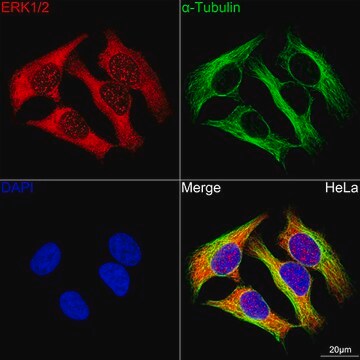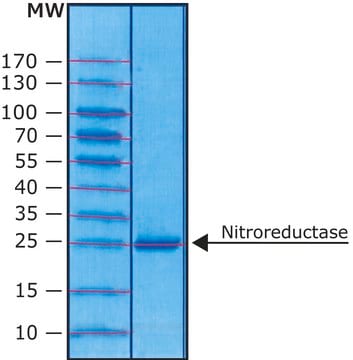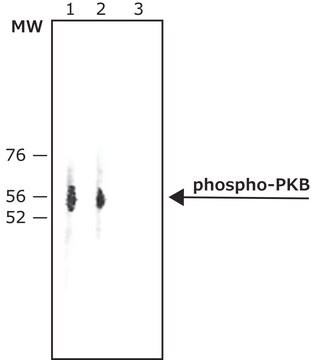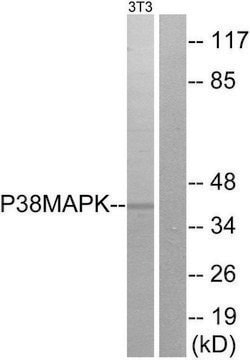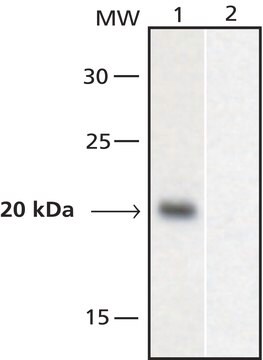M3682
Anti-MAP Kinase, Monophosphorylated Tyrosine antibody ,Mouse monoclonal
clone ERK-PY193, purified from hybridoma cell culture
Synonym(s):
Anti-pY-ERK
About This Item
ELISA (c)
ICC
WB
immunocytochemistry: suitable
microarray: suitable
western blot: 1-5 μg/mL using cell extract of rat fibroblasts cell line, Rat1, activated with sorbitol
Recommended Products
biological source
mouse
Quality Level
conjugate
unconjugated
antibody form
purified from hybridoma cell culture
antibody product type
primary antibodies
clone
ERK-PY193, monoclonal
form
buffered aqueous solution
mol wt
antigen, ERK-1 44 kDa
antigen, ERK-2 42 kDa
species reactivity
rat, human
concentration
~2 mg/mL
technique(s)
capture ELISA: suitable
immunocytochemistry: suitable
microarray: suitable
western blot: 1-5 μg/mL using cell extract of rat fibroblasts cell line, Rat1, activated with sorbitol
isotype
IgG1
UniProt accession no.
shipped in
dry ice
storage temp.
−20°C
target post-translational modification
phosphorylation (pTyr)
Gene Information
human ... MAPK1(5594) , MAPK3(5595)
rat ... Mapk1(116590) , Mapk3(50689)
Related Categories
General description
Specificity
Immunogen
Application
- immunoblotting
- enzyme linked immunosorbent assay (ELISA)
- dot-blot
- immunocytochemistry
- western blotting
- immunofluorescence
Biochem/physiol Actions
Physical form
Preparation Note
Disclaimer
Not finding the right product?
Try our Product Selector Tool.
Storage Class Code
10 - Combustible liquids
WGK
WGK 3
Flash Point(F)
Not applicable
Flash Point(C)
Not applicable
Choose from one of the most recent versions:
Already Own This Product?
Find documentation for the products that you have recently purchased in the Document Library.
Our team of scientists has experience in all areas of research including Life Science, Material Science, Chemical Synthesis, Chromatography, Analytical and many others.
Contact Technical Service
